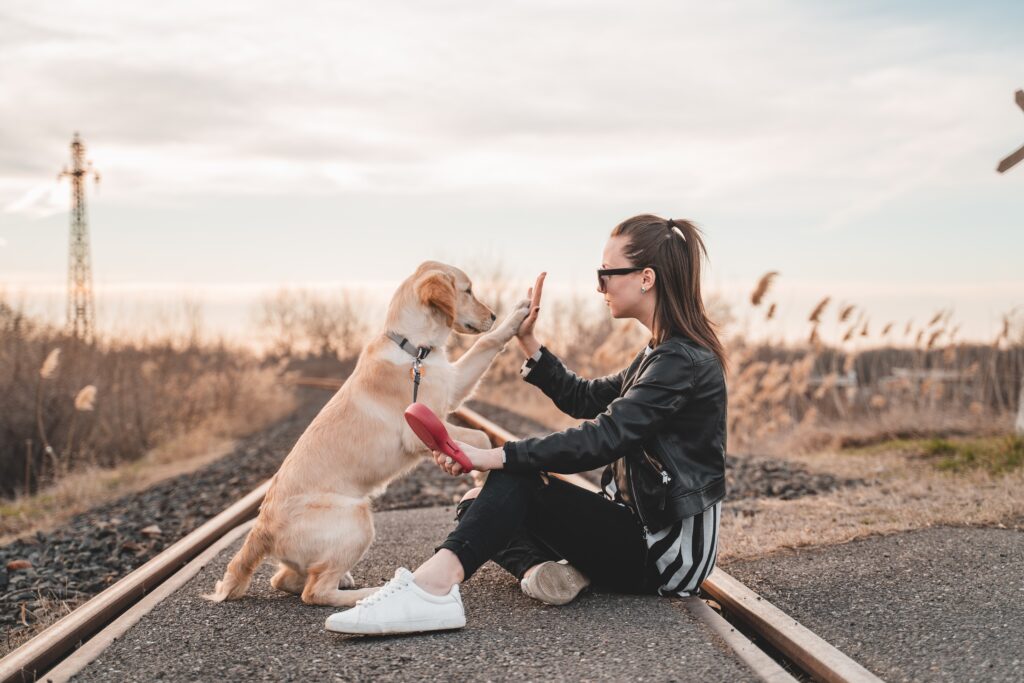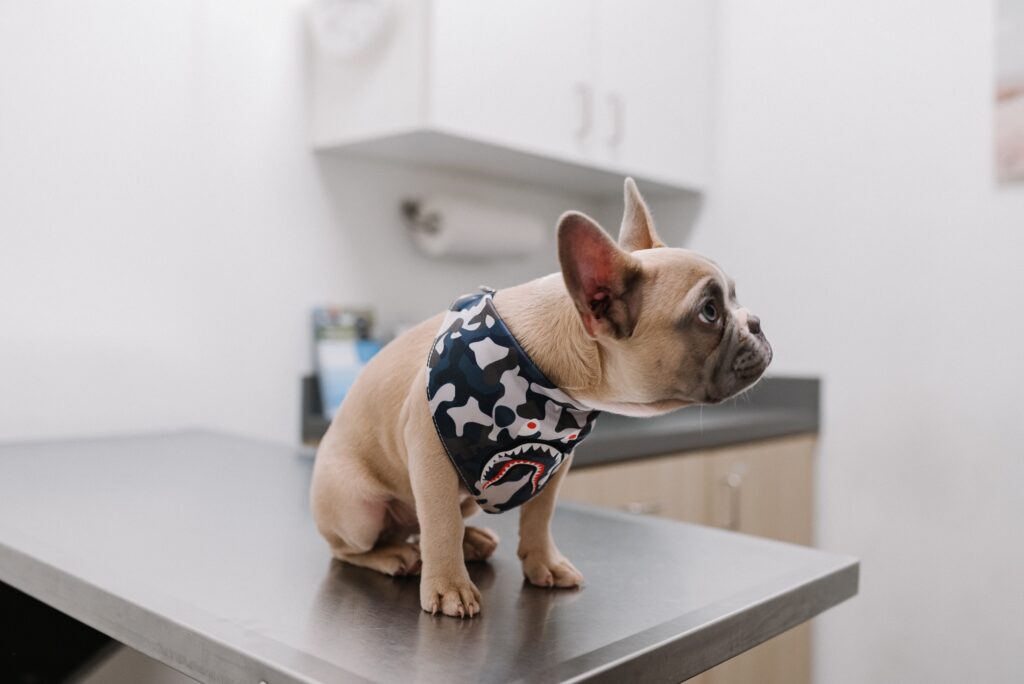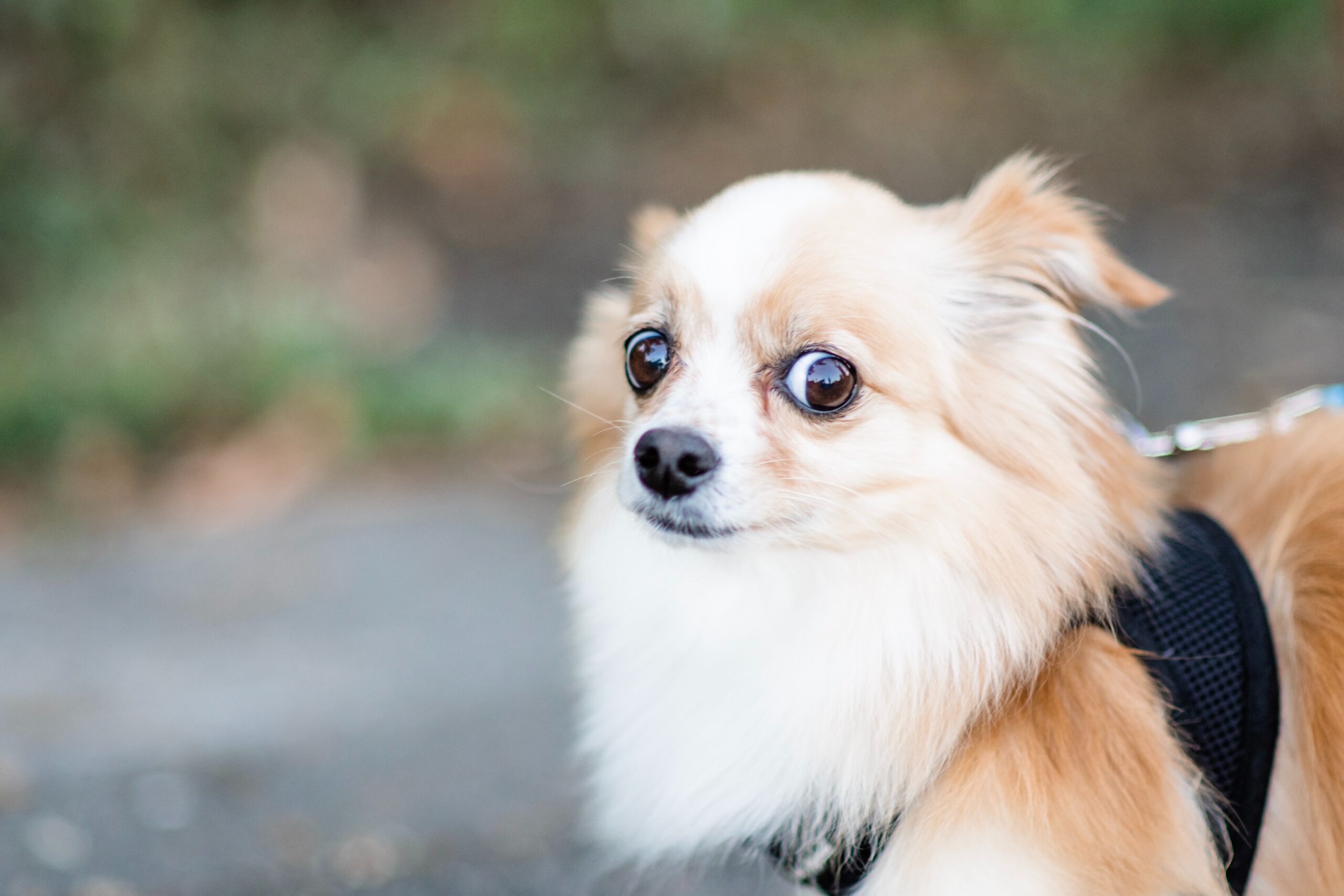March 21, 2023
I adopted my dog June when she was one. For the first year of her life she did not show any fear of noises. At two years old she heard a very loud sound while we were walking in the city and from that day forward, each new loud sound seemed to make her more and more afraid.
She would hear garbage trucks or buses pass by and try to flee. Sometimes she would freeze in place with pupils dilated and seemed unable to walk.
In the summertime, fireworks set off by neighborhood kids would leave her shaking and panting.

What is sound sensitivity?
Noise phobia or sound sensitivity as it is called in dog training is the fear of fireworks, thunder, gunfire or other loud sounds.
Symptoms can range from mild discomfort to full on panic and distress. As mentioned in the above anecdote about my personal dog, June sound sensitivity can begin unexpectedly.
There are two main types of sound sensitivity in dogs.
- Early onset sound sensitivity occurs when a dog has little exposure to loud scary sounds. There appears to be no “sensitizing incident” but the dog is still fearful when a loud sound occurs, almost from the start.
- Late onset sound sensitivity occurs later and over time. Typically, at first the dog has no fear of fireworks or thunder. Then suddenly he hears fireworks or another loud noise and seems riddled with fear. With each new exposure, he becomes more and more sensitive to sound. Within a few months, he is in complete distress each time he hears a triggering sound.
With late onset sound sensitivity, it can feel like you are to blame. I hear things like this from my clients:
“If only I had just not taken him to that park where he heard that car backfire!” or “If we lived in a quieter area where there wasn’t so much noise from that school, he wouldn’t be like this.”

The fact is, sound sensitivity is genetic. Whether your dog had early or late onset presentation, their condition was likely inevitable. Don’t blame yourself. There is lots that can be done to help sound sensitive dogs.
How can I tell if my dog has sound sensitivity?
Behaviors associated with both types of sound sensitivity are freezing in place, hiding, fleeing, cowering, shaking, panting, barking, lunging, drooling, and dilated pupils.
Both late onset and early onset sound sensitivity are genetic which underlines the importance of working with a reputable breeder.
Whether your dog suffers from late onset or early onset sound sensitivity, the fear will not go away spontaneously or with repeated exposure.
In fact, repeatedly exposing your fearful dog to loud sounds without proper training will make his fears worse.

What can I do for my sound sensitive dog?
Sound sensitive dogs should be seen by a veterinarian and/or evaluated by a certified veterinary behaviorist (a veterinarian who completed a residency in behavior and specializes in behavior).
Sound sensitivity can be treated with long term medications like SSRIs and with short term medications that can be used preceding loud scary events like 4th of July fireworks.
Veterinary behaviorists are particularly adept at treating sound sensitivity with medication.
Once you have spoken with your vet about the possibility of medications for your dog, work with a certified force-free dog trainer. We can help your dog feel safer around the sounds that scare him using the science of animal behavior and evidence-based dog training.
Dog training for sound sensitivity in York, PA
Your trainer will pair sounds your dog hears in his environment with delicious treats. Gradually your dog will feel neutral towards previously scary sounds, and eventually, he may even get excited when he hears loud sounds as they predict tasty treats.
Your trainer will also introduce and trial management measures to keep your dog more comfortable at home when loud sounds are inevitable.
With veterinary care, proper training, and management your dog can work through sound sensitivity and go on to live a happy and fulfilled life.
Is your dog struggling with sound sensitivity? Book an initial consultation with a certified force-free dog trainer here.
Leave a Reply Cancel reply
Frustrated with reactive outbursts on walks?
Wondering if you will ever enjoy a "normal" walk with your dog?
you need this free guide!
follow along on instagram @modernmannersdogtraining
privacy policy
design by little hound creative
